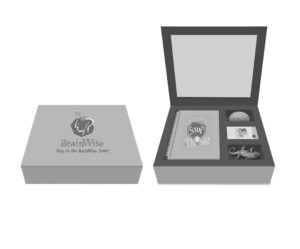How to Be a BrainWise Parent
Posted On: March 1, 2023 The latest data from the Centers for Disease Control (CDC) show that mental health issues are continuing to increase in children and youth. “These data echo a cry for help,” said CDC’s Debra Houry, M.D., M.P.H, “but science shows the trend can be reversed by surrounding youth with the proper help and support.” BrainWise instructors are doing this by teaching thousands of children about the brain and how to use thinking skills to prevent and manage problems. BrainWise Applications – Best Applications for Brain Development
The latest data from the Centers for Disease Control (CDC) show that mental health issues are continuing to increase in children and youth. “These data echo a cry for help,” said CDC’s Debra Houry, M.D., M.P.H, “but science shows the trend can be reversed by surrounding youth with the proper help and support.” BrainWise instructors are doing this by teaching thousands of children about the brain and how to use thinking skills to prevent and manage problems. BrainWise Applications – Best Applications for Brain Development
Most BrainWise instructors are educators, but a subgroup of aides, paraprofessionals, mentors, community volunteers, and other childcare providers have demonstrated that they, too, are BrainWise rock stars. Their successful outcomes prove that nonscientists can teach about the brain to young children, help them to recognize problems, and show them how using their Wizard Brains will help them “stop and think.”
The soon-to-be-completed BrainWise for Parents Kit offers parents a mini-classroom to teach the 10 Wise Ways at home. It will include many of the materials and activities teachers use to teach BrainWise in schools, clinics, church groups, social service agencies and counseling practices.
The BrainWise for Parents Kit
The materials will be packaged in a box that contains a copy of the How To Be BrainWise book, a BrainWise for Parents Manual, and a package containing worksheets, activities, and crafts that are used in conjunction with the Manual.
The intent is to make the box a teaching tool as well, so it can be used as a “desk” to store materials, including a drawing of a brain which can be used to show which Wise Ways have been learned. These “hands on” teaching tools will help children practice using the skills.
BrainWise instructors throughout the U.S. and other countries have shown the program’s effectiveness across gender, race, age, income, and developmental abilities. The BrainWise for Parents Kit uses their collective knowledge and experiences to provide parents with the same materials and activities the instructors use. The BrainWise Program – Research and Results